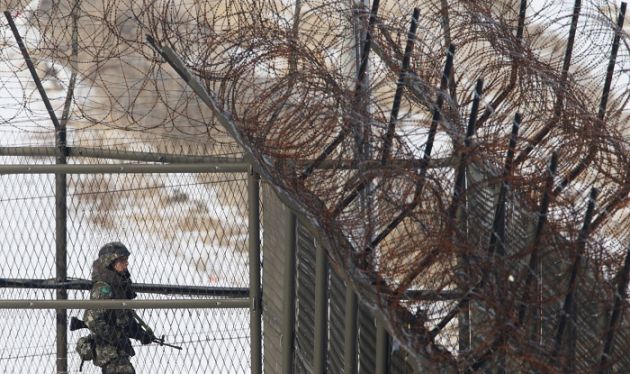N. Korea warns of end to cease-fire, faces stiffer sanctions

North Korea threatened Tuesday to cancel an armistice that ended Korean War in 1953 because of UN sanctions and ongoing US-South Korean joint military drills.
The Korean People's Army Supreme Command spokesman said it "will completely nullify the Korean armistice," the North's Korean Central News Agency reported.
The statement came shortly before the United States and China introduced new U.N. sanctions in the Security Council against North Korea following its February atomic-weapons test.
"The resolution tabled today will take the U.N. sanctions imposed on North Korea to the next level, breaking new ground and imposing significant new legal obligations," said U.S. Ambassador Susan Rice speaking to journalists.
Saying she hoped for unanimous support for the sanctions, she noted, "North Korea will be subject to some of the toughest sanctions imposed by the U.N."
North Korea and South Korea have technically remained at war since the 1950-53 Korean War, which ended in a cease-fire agreement rather than a peace treaty.
The North's spokesman called the U.S.-South Korean military drills, which began Friday, a "systematic act of destruction aimed at the Korean armistice." The military said it would be suspending peace-building activities at the border village of Panmunjom and cut off communications at the location.
Following North Korea's latest nuclear blast, all 15 council members approved a statement condemning Pyongyang's nuclear test and pledging further action.
The United Nations already has imposed three sanctions on North Korea after the first two nuclear tests in 2006 and 2009, banning the country from conducting nuclear or missile tests and importing related technology, and restricting financial activities.
Pyongyang said the February test was a "self-defensive measure" made necessary by the "continued hostility" of the U.S., but Washington and others say brinkmanship is behind their nuclear tests.
In response to the North's latest nuclear test, World Council of Churches general secretary Rev. Olav Fykse Tveit expressed concern over the tension in the Korean peninsula and called for "direct contacts between the parties, multilateral negotiations and the redress of unresolved grievances."
The WCC, one of the world's biggest church bodies representing 560 million Christians, will hold its 10th Assembly in Busan, South of Korea, starting in October, when the WCC's highest governing body that meets about once every seven years will address the theme "God of life, lead us to justice and peace."
The details of the newest U.N. sanctions have not been announced.
On Friday, South Korean President Park Geun-hye urged North Korea to abandon its nuclear program and "uphold its agreements with South Korea as well as the with the international community and walk the path of trust and mutual acknowledgement."